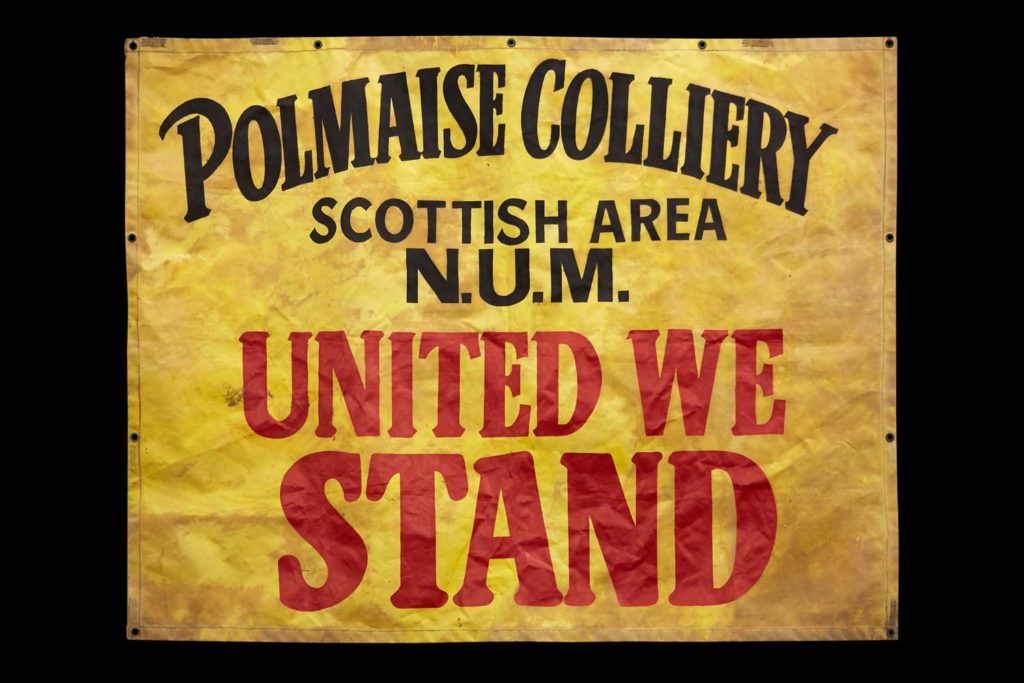
This striking banner was proudly held at the forefront of many a march throughout the Miners’ Strike of 1984-85. It became an iconic image, borne aloft by members of the National Union of Mineworkers based at the Polmaise No.3 & 4 Colliery.
The village of Fallin to the east of Stirling owes its existence to King Coal. It was built around the development of the Polmaise pit, a true colliery village where workmates were also neighbours and friends. The shafts were sunk in 1904 and at its peak Polmaise employed around 1100 men.
Despite being one of the most progressive and productive pits in Scotland, by late 1983 the colliery was threatened with closure, its workers locked out. This created a spark, one of the flashpoints that became the Miners’ Strike of 1984-85.
Workers at Polmaise No.3 & 4 went out on strike three whole weeks before being joined by the nation’s miners and returned to work a week after everyone else. Despite spending a record 56 weeks on strike, there was never a picket line at Polmaise, such was the solidarity and agreement amongst the work force.
British Coal announced the closure of Polmaise on 15th July 1987. As the gates were closed for good two days later, 112 men were left to join the dole queue at a time when unemployment in the area was above 30%.
The Polmaise Colliery banner was believed lost until 2009, when an appeal in the Stirling Observer succeeded in tracing it – now safely conserved and kept in trust, a memento of the area’s proud mining story.